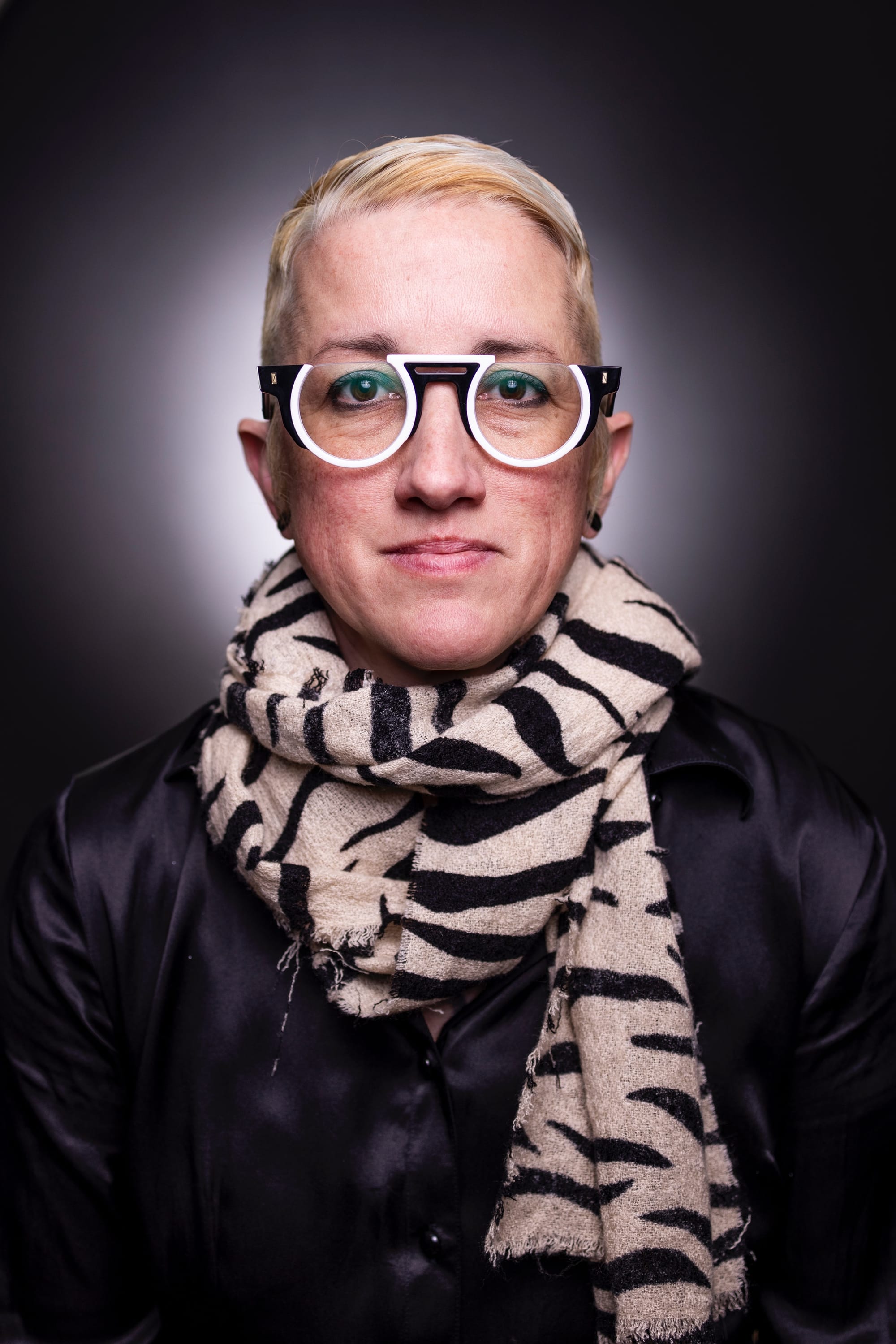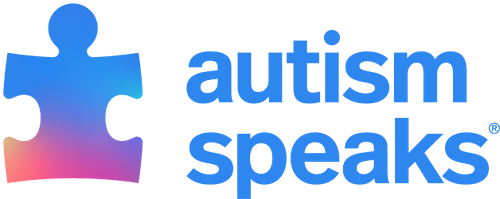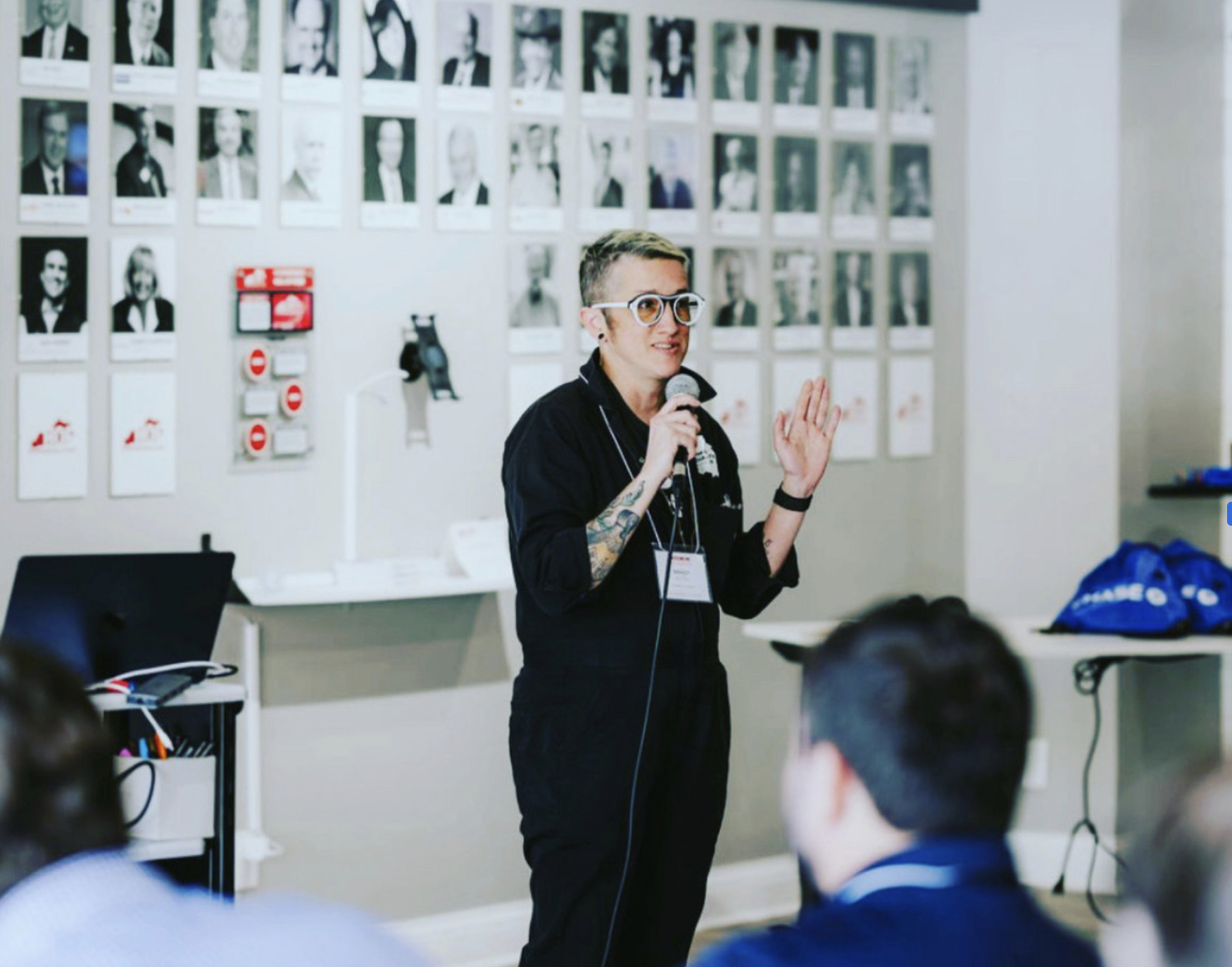Kentucky’s startup ecosystem comprises mainly of white, cisgender and heterosexual men. According to StartOut, there are only TWO reported LGBTQ+ entrepreneurs in Kentucky that are considered “high-growth companies or entrepreneurs.” However, every now and then, a wild card comes along and jolts the WASPy community with a delightful disturbance.
Enter Amanda Ralston, a human of many talents. A successful entrepreneur with a background in Applied Behavior Analysis (ABA). She describes herself as “charismatic” “dynamic” and most notably — compassionate. One interesting quirk? She has an unapologetic love for the Oxford comma — her one fatal flaw.

STOP, wait…ABA? Isn’t that … awful?
Well, Ralston said, the early practices of ABA from the ‘70s and ‘80s included the use of punishment to create motivation to respond to certain tasks. This included water bottle sprays in the face, loud startles and even slaps.
But, she added, just like psychology evolution, practices are abandoned in favor of more ethical and efficacious data-based practices.
“It is the simple fact that what is best practice today, will not be the same decades from now,” she said. “So you must practice with humility and the ability to change with time. When you know better, you do better. But you have to have data to know better.”
Many people have taken issue with the organization Autism Speaks (known for its ABA practices), criticizing it for working to “cure” autism or viewing it as a “problem” to be “solved” (see: the puzzle piece logo of AS).

Ralston said, “There is a very useful and needed discussion around the concept of #Neurodiversity and an always-broadening understanding that there is a wide range of needs, strengths, talents, and voices in the autism community, and beyond.”
She further explains that one person with autism doesn’t represent everyone with autism.
“To this point — for one group to pretend to understand the preference for any family or person and the group they seek help, guidance, or affirmation from is a binary attitude. And binaries are not relevant on a spectrum.”
OK, let’s continue.
Being neurodivergent herself, Ralston saw a gap in the health care industry when it came to serving those with autism. To fill that need, she founded NonBinary Solutions (NBS) — an innovative, decision-support software company aimed at aiding clinicians through the steps of providing care for people on the spectrum.
According to the National Autism Association, one in 36 children are on the spectrum.
Ralston is tackling the challenge of providing care to those living with autism in a unique way. By utilizing a compassionate lens and cutting-edge technology, NBS deploys interactive algorithms that guide clinicians from care navigation to outcomes, reducing the time spent on complex clinical processes.
“I have spent years listening to the needs and desires of individuals and families impacted by autism as a clinician and I’ve helped countless individuals learn to communicate, become more independent, safer, and happier,” she said. “And a lot of that comes from experience. And a lot of experience comes from mistakes.”

Ralston added she’s working to help other providers without her 25 years of clinical experience avoid pitfalls with supportive technology she’s created.
In a February 2023 KY Inno article, Ralston said, “The software will ask providers a series of questions that correspond to internal algorithms to serve as a guide along the process, while offering the provider a list of reference materials (articles, websites) and other recommendations to help better inform decisions, while providing insurance companies a report that documents their entire work with a particular patient — and the decisions they made to reach their treatment plan.”
The award-winning entrepreneur’s interest in ABA began when she saw its potential to improve lives.
“Autism is multidimensional, as are the people diagnosed with autism,” she said. “ABA is not a one-size-fits-all approach. And so the solutions cannot be black and white — there must be shades of gray. Thus the name — NonBinary Solutions.”
According to the Behavior Analyst Certification Board, a nonprofit corporation that was established in 1998 to meet professional certification needs identified by behavior analysts, governments and consumers of behavior-analytic services, the number of individuals being diagnosed with autism has risen significantly over the past decade (1 in 36 people), leading to a 500% increase in the number of service providers specializing in autism.
“While having more providers is great,” Ralston said, “It’s important to note that more than half of all service providers have less than five years of experience.”
More experienced professionals are needed to help individuals with autism develop social skills, communication skills, self-care skills and other necessary daily living skills. Additionally, experienced professionals can guide and support families as they navigate their new reality with an individual diagnosed with autism.
Clinical Decision Support Technology is state-of-art in health care, but new to autism services and ABA therapy. Because the growth of this field has increased at a far greater pace than that of other health care types, it’s crucial that providers adopt technology to help them stay current on the latest data, trends and best practices.

Ralston’s passion for her work is evident in everything she does.
“I love seeing the lightbulb moments for clinicians when they realize how much easier our software makes their lives,” she said. “I also enjoy working with such a talented and dedicated team.”
Also, this isn’t Ralston’s first rodeo. She’s a true cowgirl with a proven track record having founded two ABA clinics in two decades – the most recent of which (Verbal Behavior Consulting) was successfully acquired by the fourth-largest ABA organization in the United States in 2019.




